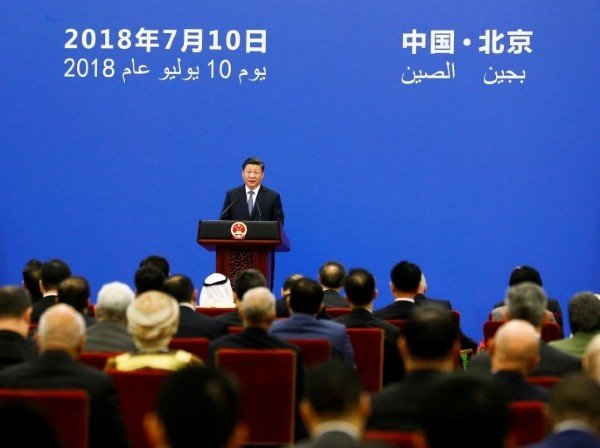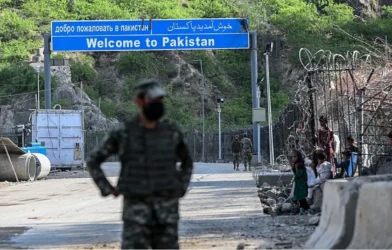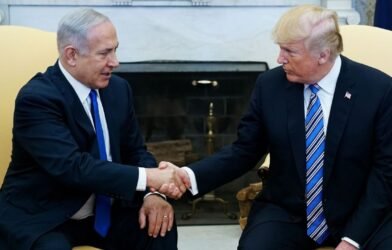Subtotal $0.00
Perhaps the most characteristic behavior of North Korea The diplomat is diplomatic in its dealings with the major powers, chief among them United States The U.S. is a source of much cynical outrage among these powers.
This was evidenced by the nickname given by the U.S. President Donald Trump He called North Korean President Kim "Little Rocket Man" in a derogatory and belittling manner, which led to a response that was a rare and humorous scene in Twitter diplomacy, which has become a feature of the 21st century.
The most striking thing about the U.S.-North Korean negotiations is the wide gap between the positions of the two sides, as America, which plays the role of the world's policeman, declares that it will only accept the elimination of Nuclear weapon North Korea's "complete, verifiable and irreversible removal."
The North Korean side assumes that it will enter negotiations - without preconditions - that will lead to a fair agreement between the two sides, leading to the de-escalation of tension in the region and the normalization of relations between the two countries.
Negotiations for the sake of negotiations
The Americans declare that they will not allow North Korea to evade under the cover of prolonging the negotiations or obtaining any gains unless it responds to all US conditions; Trump and his right-wing hawks portray it as if they have managed to subdue the North Korean "monster" and succeeded in normalizing it by using the "maximum pressure" strategy.
The Americans believe that they have brought the North Korean side to the negotiating table, and it is only acceptable for it to respond fully to the US conditions, otherwise it will face devastating consequences.
| “ The Americans declare that they will not allow North Korea to evade under the guise of prolonging the negotiations or obtaining any gains unless it meets all U.S. conditions; Trump and his right-wing hawks portray it as if they have managed to subdue the North Korean "monster" and succeeded in normalizing it using a strategy of "maximum pressure" “ |
The "maximum pressure" strategy is far from being realized, as Chinese banks continue to do business with North Korea unimpeded, and imposing U.S. sanctions on North Korea would further inflame the trade war with China. China.Declaration
This is not in the U.S.'s interest at all right now, as it is at odds with its Western European and Canadian partners. In addition, the Russia China, North Korea's lifeline and international umbrella, has not shied away from it.
So what brought North Korea to the negotiating table? It is clear that North Korea has reached its power potential and is now feeling very empowered, and it is time to come down from the tree and adopt a more realistic policy that will bring it back to the mainstream. International community from a position of strength.
If it does so, it will be recognized as a regional nuclear power with a regional sphere of influence like many European countries And India and PakistanThe North Koreans may be planning a range of immediate goals for the start of negotiations, for example:
- Economic aid: To encourage North Korea to engage in peaceful negotiations, economic incentives could come from South Korea and Japan and China, countries that have an interest in defusing tensions in the region, which would have a beneficial effect on North Korea's economy and social situation.
- Preventing U.S. aggression: The North Koreans realize that as long as negotiations continue, it makes no sense for America to launch a surprise attack on their country, as war begins when diplomacy stops, as they say.
Keeping the negotiations going for as long as possible is a security goal in itself; it will likely not commit to any concessions before a final agreement is reached, so it will be free to develop its military and security capabilities in the meantime.
- Improving North Korea's reputation: To entice North Korea to participate and stay in the negotiations, the propaganda campaigns against it would have to be stopped or reduced, which would mean that its image in the Western media would be less tarnished than usual.Declaration
The fact that the United States is willing to sit down with the North Koreans - its staunchest adversary - will encourage countries without the same level of antagonism to reach out to the North Koreans, under the slogan "We will not be more royal than a king."
- Drive a wedge between America and its allies: One of the most important things the North Koreans can accomplish during the negotiations, some say, is to drive a wedge into U.S.-South Korean and U.S.-Japanese relations.
There is talk that North Korea recognizes South Korea and Japan's need for peace and the specter of a devastating war in the region, and that South Korea's president Moon Jae-in He had made a commitment to his people to do so; therefore, they responded to his desire to hold negotiations.
If these negotiations fail, North Korea will hold the U.S. administration responsible for their failure and portray it to the South Korean people as a reckless war-mongering ally that disregards South Korea's interests. If the negotiations succeed, they will focus primarily on convincing North Korea to abandon its intercontinental missile system, which can hit the U.S. mainland.
Discussion of other types of missiles and weaponization that directly threaten regional security will be postponed or ignored, showing the United States to South Korea and Japan as a selfish, self-interested ally. Whichever way this ends up, it will push South Korea and the region away from America and toward China, and will make the ability to Washington to wage war on Pyongyang very difficult without the region's consent and assistance.
The Trap of American Divisiveness
In an attempt to deprive Trump of any moral or negotiating victory with North Korea, a group of Democratic senators published a letter addressed to the president demanding that he adopt hardline terms for negotiations that amount to an impossibility but are in line with the rhetoric of Republican hawks.
Their goal is to outbid the Republicans and prevent them from backing away from the hardline rhetoric and showing some flexibility in the negotiations. If this happens and these demands are adopted, it will be a recipe for failure, reminiscent of the position taken by the Republicans on the eve of the start of the negotiations with former President Barack Obamawith the Iranians. The most important of these conditions are:Declaration
| “ The idea that North Korea will accept the U.S. vision of "complete, verifiable, irreversible denuclearization" is a wild fantasy that can only happen by a miracle, and it must be understood that every concession from the North Korean side - no matter how small or symbolic - must have a price to be paid by America and its allies “ |
- Ending the production and enrichment of uranium and platinum for military purposes.
- Complete dismantling of nuclear weapons infrastructure.
- Destroy all uranium enrichment research and development capabilities.
- End ballistic missile testing.
- Commit to effective weapons inspection programs.
- Weapons inspection programs should be comprehensive and unhindered.
- There should be a separate agreement for biological and chemical weapons.
- Provisions on how North Korea will be penalized if it violates any of the signed terms.
- This agreement is perpetual and timeless.
The terms are a humiliating surrender agreement rather than negotiation terms, which North Korea will undoubtedly reject, prompting President Trump to respond harshly to the Democrats, saying that they have failed to negotiate with Iran They are not in a position to give advice.
Trump's traditional position on North Korea is that he rejects negotiations with North Korea and tends to adopt a policy of pressure on the country. This is the position of John Bolton, who was recently appointed as the president's national security advisor and is a prominent hawk who has publicly stated that negotiations with North Korea are a waste of time.
Bolton believes that all that can be done with Pyongyang is a pre-emptive strike against it to prevent it from thinking of using its military power against others, and then he put forward the so-called "Libyan model": the complete dismantling of all influential weapons systems without compensation.
North Koreans may well remember what happened to Muammar Gaddafi, who accepted this model. Secretary of State Mike Pompeo, who came from an intelligence background, is working hard with his Asian partners to make these negotiations work, and wants to market them as one of the Trump administration's major foreign policy successes, something that Obama failed to achieve.
It is clear that the rivalry with Obama has become a knot for Trump, who has reversed all of his predecessor's agreements and treaties, accusing him of incompetence and even seeking a Nobel Prize like Obama.
Although such talks will be long and arduous, with low ceilings, Trump's populist rhetoric and the push by his Democratic opponents could cause them to fail in the bud, which I have previously noted is dangerous for America's relations with South Korea and Japan and in favor of China, and the chances of this failure are enhanced by the urgency of Trump and his administration to obtain short-term gains and the presence of people like Bolton.Declaration
The idea of North Korea accepting the American concept of "complete, verifiable and irreversible denuclearization" is a wild fantasy that cannot happen without a miracle, and it must be understood that every concession from the North Korean side - no matter how small or symbolic - must have a price to be paid by America and its allies, and may end - if the negotiations are successful - in the recognition of North Korea as a recognized nuclear power with legitimate regional and international interests.











